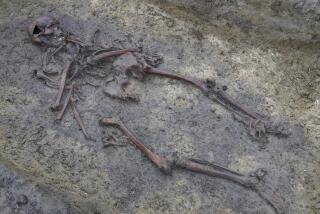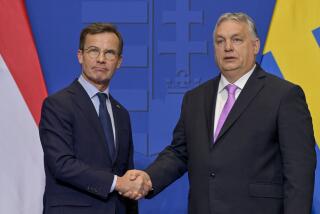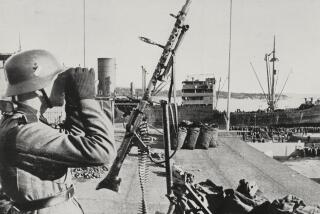Region Emerging From Role as European Backwater
- Share via
COPENHAGEN — Only once, a thousand years ago during the Viking period, did a Nordic influence briefly dominate, with Scandinavian warriors ranging from the East Coast of North America--500 years before Christopher Columbus--to the Black and Caspian seas.
The Norse admiringly described the attacking frenzies of their finest warriors as a state of being “berserk”--a Norse word absorbed into English. The Vikings also gave the name “Russ” to the Slavs who later adopted it for themselves as Russian.
But in the ensuing millennium, the tides of major European events and ideas usually touched Scandinavia belatedly--and with reduced force.
For 4 1/2 centuries, until the defeat of Napoleon in 1814, Norway was a part of Denmark. It then became Swedish before gaining independence in 1905.
Less than a century ago, the region languished as an agricultural backwater with little capital to industrialize, no rich empires to exploit and few bright prospects for the future. But in this century, geographical remoteness suddenly became an advantage.
A belated, more gradual industrialization avoided the trauma and bitter social divisions that came elsewhere in Europe.
All three Scandinavia countries escaped World War I. And, with the exception of Norway’s northern counties--razed by the retreating Nazis--destruction was light during World War II. Swedish industry thrived on the postwar reconstruction.
More recently, the discovery of North Sea oil has brought new wealth to Norway, triggering a frenzied consumer boom that has left Oslo as one of Europe’s most expensive cities--beer at $8 a glass, for example--further expanding its extensive welfare state benefits.
The present level of material wealth that has become synonymous with modern Scandinavia is unknown for a region whose energies have historically been drained by the struggle to survive intermidable winters.
“The changes have been enormous for us,” said Arne Finborud, one of Norway’s leading political commentators. “My parents were born into the poorest country in Europe; my children are being raised in one of the richest.”
More to Read
Sign up for Essential California
The most important California stories and recommendations in your inbox every morning.
You may occasionally receive promotional content from the Los Angeles Times.










